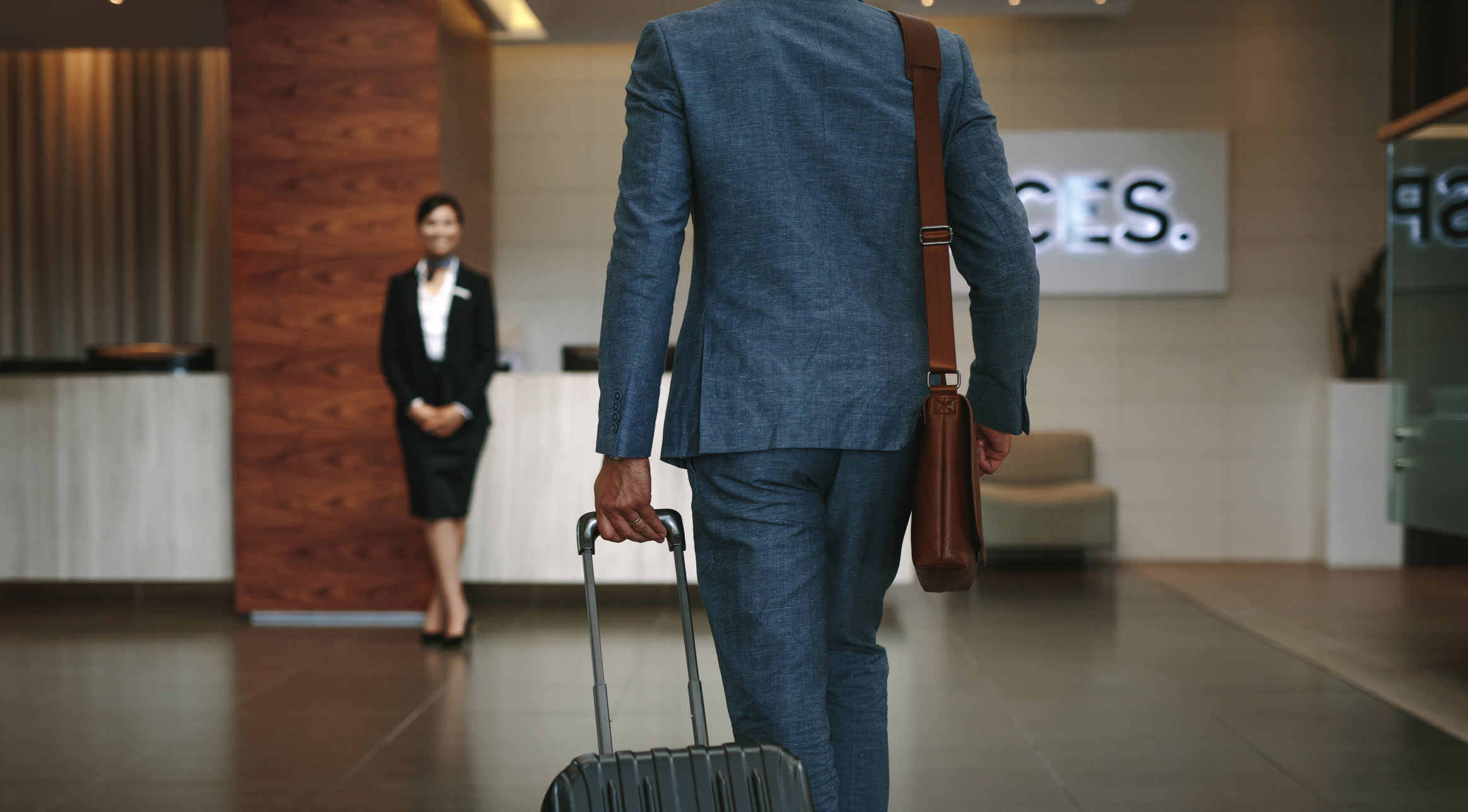Exhausted road warriors look to airport hotels for convenience. But increasingly, those hotels want travelers to visit for reasons that go beyond ease of access.
Essential needs remain constant, but a growing number of amenities, such as lavish spas and farm-to-table dining, tell of an evolving trend.
Airport hotels, like Grant Hyatt at SFO, are luring customers with upgraded amenities and time-saving perks.
Courtesy of Hyatt
Airport hotels remain big business. According to market research firm STR, which studies the industry, U.S. airport hotels ran higher occupancy than the industry average in 2019 (73.8% vs. 66.1%) — but charged about $12 less per room.
“What travelers want from an airport hotel isn’t rocket science,” says Henry Harteveldt, president of travel market research firm Atmosphere Research. He points to core amenities like easily-accessible electrical outlets, multilingual staff at international hub hotels and dining option at all hours.
Time-saving tricks
Hate waiting for the airport shuttle? Hyatt Regency San Francisco Airport installed location-tracking devices on its buses so guests know exactly when the next shuttle is arriving.
Hotels attached to airport terminals can do even better. The Westin Detroit Metropolitan Airport gives guests direct access from the lobby to a private security line in the airport.
And, the Hyatt House Shenzhen Airport makes getting stuck at the airport more tolerable with in-room kitchens and direct connection to an adjacent shopping mall.
The bathroom of a room at Grand Hyatt at SFO.
Courtesy of Hyatt
These kinds of conveniences are easier to put in place when a hotel is owned by the airport itself. San Francisco’s airport authority owns the new Grand Hyatt at SFO, the only hotel directly connected to San Francisco International Airport.
“When an airport elects to own an airport hotel, it has more control,” says Mark Vondrasek, chief commercial officer at Hyatt. Hyatt’s first hotel was at an airport, Hyatt House LAX, dubbed the “world’s first fly-in hotel” in 1957.
Hyatt operates 23 hotels around the world that are either physically connected to terminals or located on airport-owned land, including the Grand Hyatt DFW, which sits atop Dallas/Fort Worth’s terminal D — an elevator ride from the security checkpoint.
Experiences matter
Increasingly, travelers value experiences and culture, even on short visits.
New York City’s John F. Kennedy International Airport now has the aviation-themed TWA Hotel. The 1960s throwback design delivers a dose of nostalgia, while the rooftop pool gives Instagram-worthy views of the runway.
The pool at JFK’s TWA Hotel.
Courtesy of TWA Hotel/David Mitchell
Public areas of the Grand Hyatt at SFO showcase regional talent including dramatic three-dimensional design pieces, iconic Bay Area photographs and artwork by area artists. Rooms come with plane-spotting leaflets and binoculars for those facing the airport.
Farm-to-table food
Dining and the environment go hand in hand at airport-based Andaz Delhi, located outside the airport at New Delhi, which has a 24-hour, farm-to-table food hall. Images of farms where ingredients are sourced are next to most menu items.
Andaz Delhi food hall.
Courtesy of Andaz Delhi
Guests can personalize their meals by snipping their own produce directly from refrigerated gardens lining the walls. Like a modern-day farmer’s market, travelers can purchase produce and ingredients or even arrange to visit a featured farm.
Tech-savvy service
Service is just as important at airport hotels as it is downtown. Today’s travelers want both convenience and personalization; bots that deliver neither are a no-no.
Being able to text for extra towels, restaurant recommendations or a particular view — with a human responding to such requests — is key to guest satisfaction. The World of Hyatt app allows travelers to make specific requests before and during their stay without speaking to anyone on the phone.
Maintaining work-life routines
“Business travelers tell us that being able to maintain routines — whether for self-care, fitness or mental well-being — is important while on the road,” said Vondrasek.
Diffusers can subtly elevate moods in hotels.
belchonock
Westin properties employ its signature white tea scent through diffusers in public areas, and Andaz has partnered with The Society of Scent to create a hotel fragrance based upon the local environment for each of its properties.
At Andaz Delhi, notes of Indian spices and aromatherapy elements waft through the air to elevate tired travelers after a long flight.
